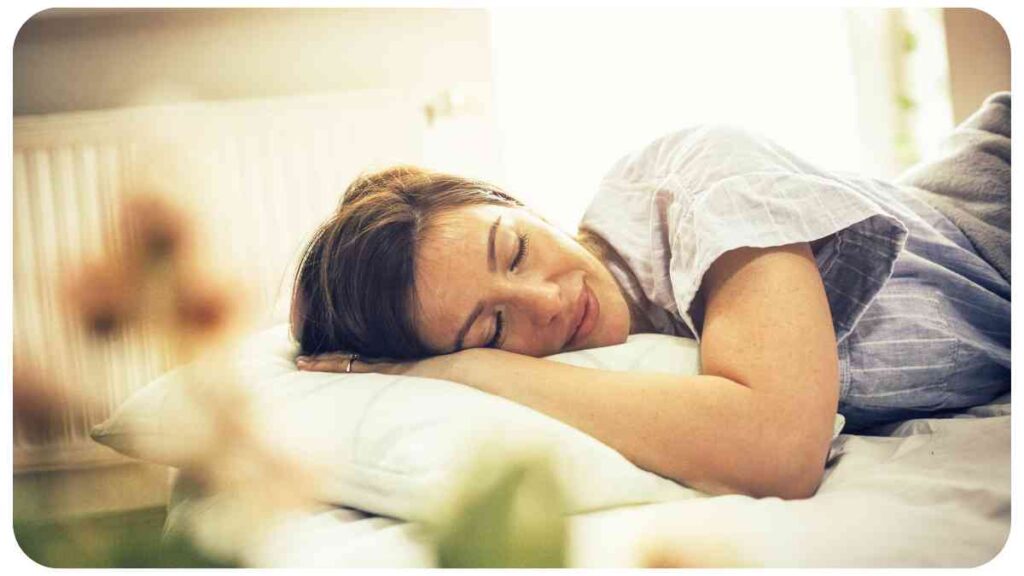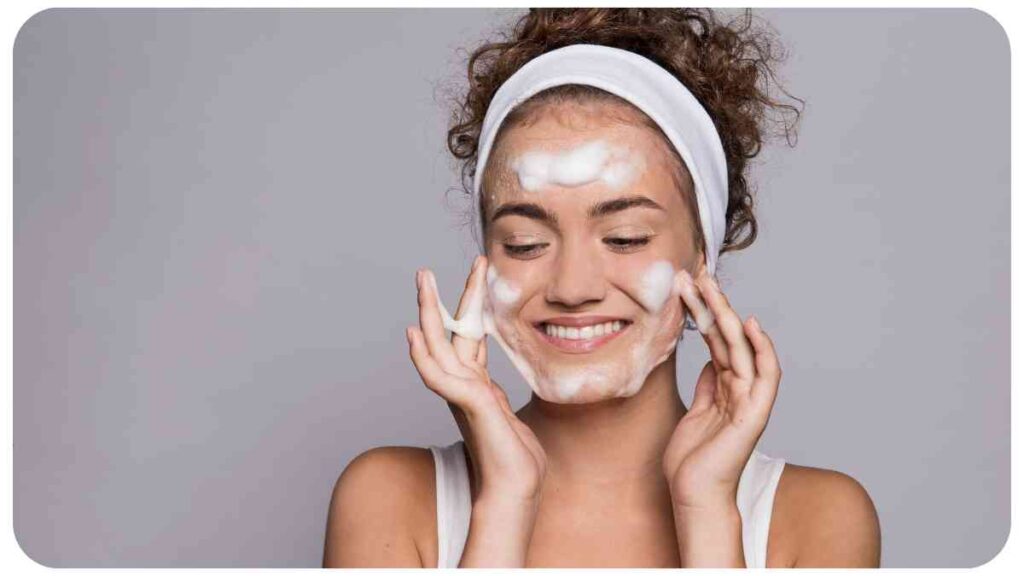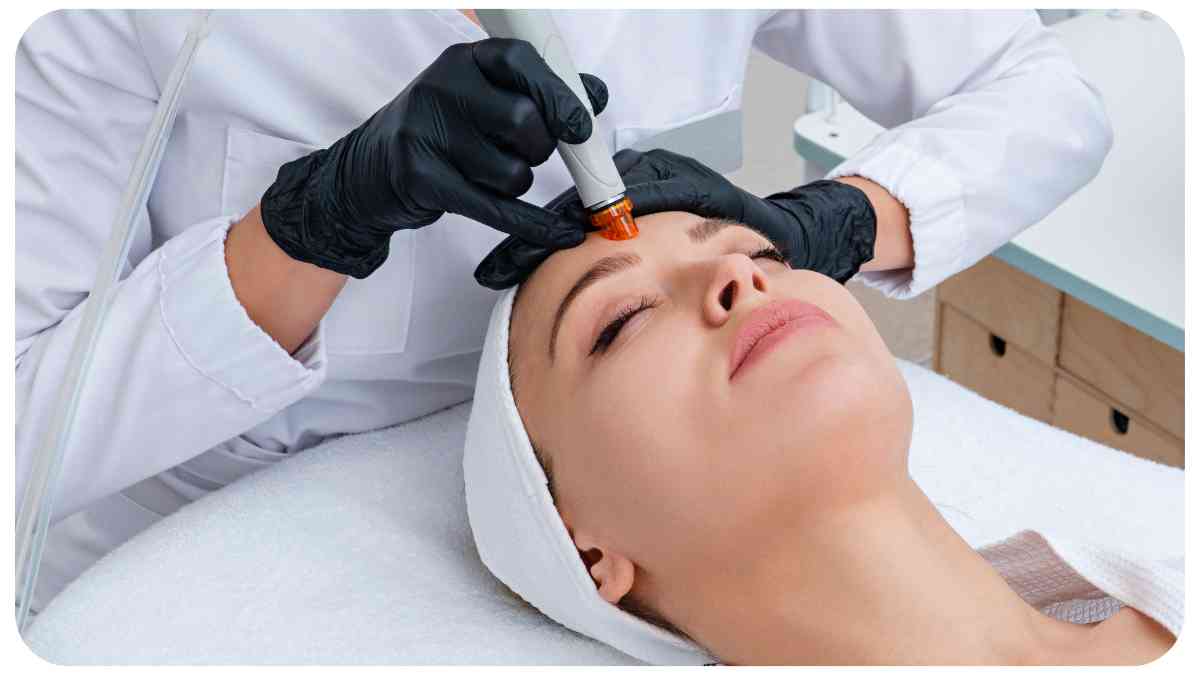Welcome to our article on “What Happens If You Sleep in Your Makeup? Exploring the Facts.” In this informative piece, we will delve into the repercussions of neglecting to remove your makeup before bedtime.
Sleeping in your makeup can have various adverse effects on your skin and overall health, which we will discuss in depth. We will also provide useful tips and best practices for proper makeup removal, so you can maintain a healthy and glowing complexion. Let’s get started!
| Takeaways |
| Sleeping in makeup can have negative effects on the skin, including breakouts, clogged pores, and premature aging. |
| Proper makeup removal is essential for maintaining a healthy and radiant complexion. |
| Establishing a bedtime routine and using high-quality makeup removers are key steps to avoiding sleeping in makeup. |
| Double cleansing, focusing on the eyes and lips, and being gentle during makeup removal help ensure thorough cleansing. |
| Moisturizing and nourishing the skin after makeup removal is crucial for maintaining optimal skin health. |
| Removing makeup allows for better absorption of skincare products and supports the skin’s natural overnight renewal process. |
| Makeup remover wipes can be used in emergencies but should not replace proper cleansing. |
| Choosing non-comedogenic and skin-friendly makeup products and skincare ingredients can reduce the risk of skin issues. |
| Consistently removing makeup and taking care of your skin promotes a clearer, more radiant complexion and overall skin well-being. |
| Resources such as blog articles provide further insights and tips on the importance of removing makeup before bed. |
The Importance of Removing Makeup
Before we delve into the potential consequences of sleeping in your makeup, it’s essential to understand why removing it before bed is crucial. Makeup, especially foundation, powder, and other products, can clog the pores, trap dirt and bacteria, and prevent the skin from breathing properly.
This can lead to a host of skin issues, such as breakouts, acne, and premature aging. In addition to impacting the skin, leaving makeup on overnight can also pose risks to your eye health.
Looking to upgrade your makeup collection? Check out these 17 Makeup Products that you need to try right now. From stunning eyeshadow palettes to long-lasting lipsticks, this guide has got you covered.
What Happens If You Sleep in Your Makeup?

Impact on the Skin
Increased Risk of Breakouts and Acne
Sleeping in makeup can contribute to the development of breakouts and acne. When makeup, dirt, and oil accumulate on the skin’s surface, they can mix with bacteria and clog the pores. This buildup creates an environment perfect for the proliferation of acne-causing bacteria, leading to inflammation and the formation of pimples.
Clogged Pores and Dull Complexion
Leaving makeup on overnight can result in clogged pores, which can make your skin appear dull and lackluster. The combination of makeup products, excess oil, and environmental pollutants can settle into the pores, preventing natural exfoliation and hindering the skin’s ability to regenerate.
Struggling with oily skin? Discover the Best Makeup Products specifically curated for oily skin types. Find the perfect foundation, primer, and setting powder to keep your makeup shine-free all day long.
Premature Aging
One of the more alarming consequences of sleeping in makeup is the potential for premature aging. Makeup residue and impurities on the skin can contribute to the breakdown of collagen and elastin—the proteins responsible for maintaining skin elasticity and firmness. Over time, this can lead to the development of fine lines, wrinkles, and sagging skin.
Eye Health Concerns
Irritation and Infection
When eye makeup remains in place overnight, it can cause irritation and increase the risk of eye infections. Mascara, eyeliner, and eyeshadow can transfer to the eye’s delicate tissues, clogging the tear ducts and causing redness, itching, or discomfort. Additionally, leaving contact lenses on while sleeping in makeup can amplify these risks.
Eyelash Damage
Sleeping with mascara-coated lashes can lead to eyelash breakage and damage. Dry mascara can make the lashes brittle, causing them to become fragile and prone to breaking. This can result in shorter, thinner lashes over time, affecting the overall appearance of your eyes.
Additional Risks
Allergic Reactions
Certain makeup products contain ingredients that can trigger allergic reactions in some individuals. Leaving these products on the skin for prolonged periods increases the chances of an adverse reaction. Common symptoms include redness, swelling, itching, and a rash. It is important to identify any potential allergens in your makeup and avoid sleeping in them to prevent such reactions.
Interested in dry shampoo? Learn more about the pros and cons with this Comprehensive Guide. Explore its time-saving benefits and potential drawbacks, and make an informed decision about incorporating dry shampoo into your haircare routine
Reduced Skin Repair and Regeneration
During sleep, your body goes through various regenerative processes. Skin cells are renewed, and the skin repairs itself from daily damage. However, when makeup is left on, these processes can be inhibited. The skin’s natural renewal and regeneration can suffer, impeding its ability to recover and restore itself effectively.
Tips to Avoid Sleeping in Makeup

Now that we’ve explored the potential consequences of sleeping in your makeup, let’s discuss some practical tips to help you avoid this habit and maintain healthy skin.
Establish a Bedtime Routine
Create a consistent nighttime ritual that includes a dedicated time for makeup removal. By making this a priority, you are more likely to follow through with the process and avoid the temptation to sleep in your makeup. Consider establishing a relaxing routine that includes cleansing, moisturizing, and other self-care practices.
Dealing with skin irritations from makeup? Troubleshoot and find solutions with these Tips and Tricks. Discover how to address redness, itchiness, and breakouts caused by certain cosmetic products.
Use High-Quality Makeup Removers
Invest in high-quality makeup removers that effectively remove all traces of makeup without causing irritation or drying out your skin. Look for products that are specifically formulated for your skin type and address your makeup needs. Whether you prefer micellar water, cleansing balms, or oil-based cleansers, find a remover that works well for you.
Double Cleanse for a Deep Clean
Consider incorporating the double cleansing method into your nighttime routine. This involves using an oil-based cleanser to break down and remove makeup, followed by a water-based cleanser to thoroughly cleanse the skin. Double cleansing ensures that all makeup, dirt, and impurities are effectively removed, leaving your skin fresh and clean.
Moisturize and Nourish Your Skin
After removing your makeup, it’s important to moisturize and nourish your skin. Choose a moisturizer suitable for your skin type that provides hydration and supports your skin’s natural barrier. This step helps restore moisture and keeps your skin healthy and supple.
Keep Makeup Remover Wipes Handy
For those times when you’re too tired to go through a full skincare routine, keep makeup remover wipes on your nightstand. Although they shouldn’t be used as a replacement for proper cleansing, they can help in a pinch. Remember to follow up with a gentle cleanser and moisturizer for optimal results.
Choose Skin-friendly and Non-Comedogenic Products
When selecting makeup products, opt for those that are non-comedogenic and formulated to be gentle on the skin. Non-comedogenic products are less likely to clog your pores and cause breakouts. Additionally, be mindful of the ingredients in your skincare products and avoid any that may be harsh or irritating.
In the next section, we’ll discuss the best practices for effectively removing makeup and ensuring a clean and healthy complexion.
Curious about vegan beauty products? Uncover the truth with this Comprehensive Guide and learn whether they’re worth the hype. Get insights into their effectiveness, ingredients to watch for, and their impact on the environment
Best Practices for Makeup Removal
Proper makeup removal is essential to prevent the negative consequences of sleeping in your makeup. Follow these best practices to ensure thorough cleansing and maintain healthy skin.
Focus on the Eyes and Lips
When removing makeup, pay special attention to the delicate areas around the eyes and lips. These areas tend to accumulate more product and can be more challenging to clean. Use a gentle eye makeup remover or a cotton pad soaked in micellar water to remove eye makeup, and a lip scrub or a cotton pad with makeup remover to eliminate lip products.
Be Gentle and Avoid Tugging
Handle your skin with care during the makeup removal process. Avoid aggressive rubbing or tugging, as this can cause skin irritation and redness. Instead, use gentle motions and let the makeup remover soak into the skin to dissolve the product more easily.
Take Time to Cleanse Thoroughly
Don’t rush through the makeup removal process. Take the time to thoroughly cleanse your face, ensuring that all traces of makeup are removed. Pay attention to areas where makeup tends to cling, such as around the nose, hairline, and jawline. Use gentle circular motions with your cleanser to lift and remove any remaining makeup or debris.
Don’t Forget About Your Neck
While focusing on your face, it’s essential not to neglect your neck. Apply makeup remover and cleanser to your neck as well, using upward strokes to help remove any makeup or dirt buildup. This ensures a complete and uniform removal process, reducing the risk of breakouts or skin issues on the neck and collarbone area.
The Benefits of a Clean Face

Now that we’ve covered the importance of removing your makeup and the best practices for makeup removal, let’s explore the benefits of maintaining a clean face.
Healthy and Radiant Skin
By consistently removing your makeup before bed and thoroughly cleansing your skin, you can achieve a healthier and more radiant complexion. Makeup residue, dirt, and oil can clog the pores and lead to various skin issues, such as acne and dullness. Keeping your face clean allows your skin to breathe, promoting a clearer and more vibrant appearance.
Allows for Improved Skincare
A clean face provides a fresh canvas for your skincare products to work more effectively. When your skin is free from makeup and impurities, it can better absorb the active ingredients in your serums, moisturizers, and treatments. This maximizes the benefits of your skincare routine, allowing you to achieve optimal results.
Aids in Overnight Skin Renewal
During the night, your skin goes through a natural renewal process, repairing and regenerating itself. Sleeping with makeup on can disrupt this process and hinder the skin’s ability to rejuvenate. Removing your makeup before bed ensures that your skin can freely carry out its overnight repair mechanisms, leading to a smoother, healthier complexion.
By incorporating these practices into your daily routine and consistently removing your makeup, you can enjoy clearer, more radiant skin while also maintaining your skin’s overall health.
Conclusion
In conclusion, sleeping in your makeup can have significant repercussions on your skin and overall well-being. From increased risk of breakouts and acne to potential eye health concerns, neglecting to remove your makeup before bed can lead to a variety of issues. By understanding the impact of sleeping in makeup, you can take steps to prioritize proper makeup removal.
Remember to establish a bedtime routine, use high-quality makeup removers, and double cleanse for a deep clean. Additionally, moisturize and nourish your skin, and keep makeup remover wipes handy for convenience. Following best practices, such as focusing on the eyes and lips, being gentle during makeup removal, and ensuring thorough cleansing, will help maintain a clean and healthy complexion.
By consistently removing your makeup and taking care of your skin, you can enjoy the benefits of a clearer, more radiant complexion, improved skincare absorption, and the knowledge that you are prioritizing your skin’s long-term health.
So, the next time you find yourself contemplating sleeping in your makeup, remember the importance of a clean face and make the choice that will contribute to your skin’s overall well-being.
Further Reading
Here are some additional resources you can explore to learn more about the importance of removing your makeup and the potential consequences of sleeping in it:
TheUnexpektedStore: What Happens When You Sleep in Makeup? – This blog post delves into the effects of sleeping in makeup, including increased risk of breakouts and skin aging. It also provides tips for proper makeup removal.
L’Oreal Paris USA: Why You Should Remove Your Makeup Before Bed – This article emphasizes why it’s important to remove makeup before going to sleep. It discusses the negative impact on the skin and offers tips on choosing the right makeup removers.
Renee Rouleau: Sleeping in Makeup – This blog post explores the potential consequences of sleeping in makeup, including clogged pores, breakouts, and dull skin. It also provides advice on how to effectively remove your makeup.
FAQs
Here are some commonly asked questions about sleeping in makeup:
1. Does sleeping in makeup really cause breakouts?
Sleeping in makeup can increase the risk of breakouts by clogging your pores and trapping bacteria, dirt, and oil, leading to inflammation and the development of acne.
2. Can leaving makeup on overnight cause premature aging?
Yes, leaving makeup on overnight can contribute to premature aging. Makeup residue and impurities can lead to collagen and elastin breakdown, resulting in the development of fine lines, wrinkles, and sagging skin.
3. What are the risks of sleeping in eye makeup?
Sleeping in eye makeup can cause irritation, redness, and potential eye infections. Mascara and eyeliner left on the lashes can also lead to eyelash damage and brittleness.
4. How can I ensure thorough makeup removal?
To ensure thorough makeup removal, consider using a double cleansing method, focusing on the eyes and lips, being gentle during the process, and taking the time to cleanse thoroughly. Additionally, choosing high-quality makeup removers can aid in achieving a deep clean.
5. Can makeup remover wipes be used as a substitute for proper cleansing?
While makeup remover wipes can be convenient, they shouldn’t be used as a substitute for a thorough cleansing routine. They can eliminate some makeup, but a gentle cleanser should follow to ensure complete removal and follow-up skincare.

Hi, you! I’m Hellen James. I’m a beauty and fashion writer who loves to make the world a little more stylish and I’d love for you to join me in the fun! I’ve been writing about beauty and fashion since I was a kid, but it wasn’t until recently that I really knew what it meant to be a real expert.

